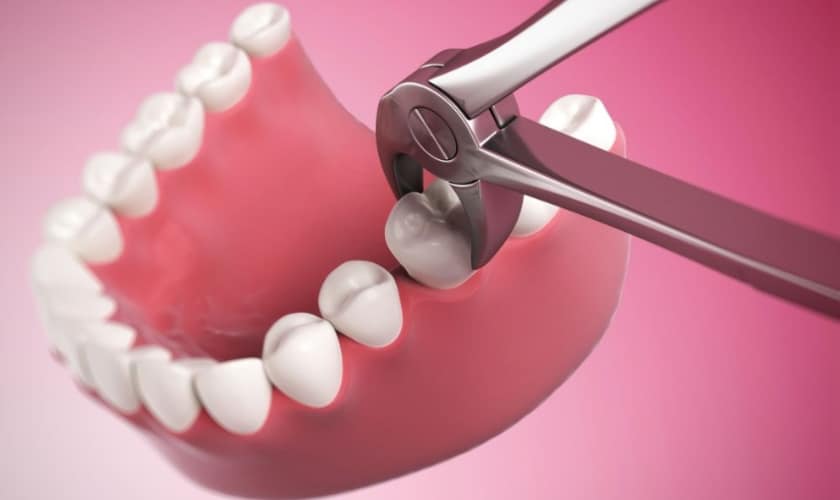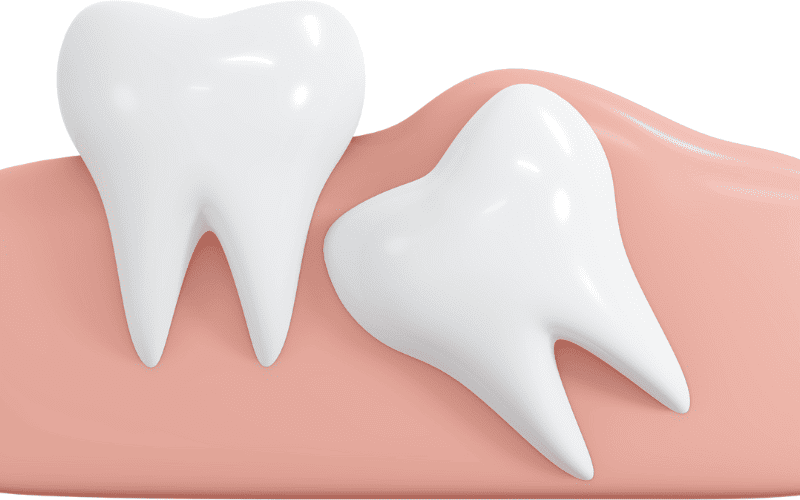ONLINE SCHEDULING AND VIRTUAL CONSULTS AVAILABLE

Wisdom Teeth Removal Insights and Tips for a Pain-Free Smile

Commencing the journey towards the removal of wisdom teeth may appear formidable. These third molars, typically manifesting between the ages of 17 and 25, possess the potential to induce discomfort and dental complications if not adequately addressed. However, with the right insights and tips, navigating through the extraction process can lead to a pain-free smile and optimal oral health. Let’s delve into everything you need to know about wisdom teeth removal, from understanding the procedure to tips for a smooth recovery.
Understanding Wisdom Teeth
Wisdom teeth, also called third molars, are the last set of teeth to develop in your mouth. They’re found at the back corners of the mouth, one on the top and one on the bottom of each side. Only some people get them, and for some lucky ones, they never cause any problems. However, many people face issues with these late bloomers. The trouble arises primarily because our jaws often don’t have enough space to accommodate them properly. When these teeth try to emerge, they might become impacted, meaning they don’t have enough room to come in normally or grow at odd angles against other teeth.
When wisdom teeth become impacted, they can lead to various complications. They might push against nearby teeth, causing crowding and misalignment issues. Sometimes, they only partially emerge, creating pockets where bacteria can thrive, leading to infections, swelling, and pain in the gums. The position of these molars at the back of the mouth makes them challenging to clean properly, increasing the risk of cavities and gum disease. As a result, dentists often recommend their removal to prevent potential problems and maintain oral health.
The Removal Procedure
During the extraction, the dentist or oral surgeon begins by making an incision in the gum tissue covering the affected tooth. This incision provides access to the tooth and its surrounding bone. In some cases, a small amount of bone might need removal to reach the tooth more easily. Once the tooth is accessible, the dentist uses specialized instruments to extract it from the socket carefully.
Sometimes, the tooth might need to be divided into smaller pieces for easier removal, especially if it’s impacted or if the roots are curved or complex. Overall, the actual procedure typically takes around 45 minutes, but it can vary based on the complexity of the extraction. Following the procedure, the dental team provides post-operative instructions on how to care for the extraction site and manage any discomfort or swelling that may occur.
Preparation for Wisdom Teeth Removal
Getting ready for the wisdom teeth extraction is crucial for a smoother experience. Before the procedure:
Consultation and Planning: Your dentist will discuss the extraction procedure and any concerns you might have. They’ll also provide instructions about what you should do before the day of the extraction.
Medical History Review: The dentist will review your medical history, including any medications you take. It’s essential to inform them about any allergies or health conditions you have.
Anesthesia Options: The dentist will discuss anesthesia options with you, whether it’s local anesthesia (numbing only the extraction area) or general anesthesia (making you unconscious). They’ll explain the procedure for each type and any fasting requirements if general anesthesia is chosen.
Arranging Transportation: If you’re getting general anesthesia, it’s crucial to arrange for someone to drive you home after the procedure, as you might not be fit to drive immediately after being under sedation.
Plan for Recovery: Set aside time for recovery after the extraction. Arrange for a few days off from work or school to rest and allow your body to heal. Having someone to assist you during this time can be beneficial.
Preparation at Home: Follow any pre-operative instructions provided by your dentist. This might include fasting if required, avoiding certain medications, or adjusting your daily routine.
Post-Extraction Recovery Tips
After the extraction of your wisdom teeth, taking proper care of yourself is crucial for a comfortable and speedy recovery. Here are essential tips to follow:
Manage Pain: Your dentist may prescribe pain medication. Follow their instructions on dosage and timing. Over-the-counter pain relievers like ibuprofen or acetaminophen can also help manage discomfort.
Control Bleeding: Bite down gently on a gauze pad placed by your dentist to help control bleeding. Change the gauze pad as instructed, usually every 30-45 minutes or when it becomes soaked with blood.
Apply Ice Packs: Use ice packs wrapped in a cloth and apply them to the cheek area near the extraction site. This helps reduce swelling and discomfort. Apply the ice packs for 15-20 minutes at a time with intervals in between.
Oral Hygiene: Carefully maintain oral hygiene by gently rinsing your mouth with warm salt water. Avoid vigorous rinsing or spitting for the first 24 hours to prevent dislodging blood clots. After the first day, gently clean the area with a soft-bristled toothbrush or a cotton swab.
Soft Diet:
- Stick to a soft diet for a few days to avoid irritating the extraction site.
- Opt for foods like yogurt, mashed potatoes, smoothies, and soups.
- Avoid hot or spicy foods and beverages.
Stay Hydrated: Drink plenty of water but avoid using straws as the sucking motion might dislodge blood clots and delay healing.
Rest: Allow yourself enough rest to aid the healing process. Avoid strenuous activities and exercise for a few days following the extraction.
Be Aware of Warning Signs: Watch out for signs of complications such as excessive bleeding, severe pain, persistent swelling, or fever. If you experience any of these, contact your dentist promptly.
Wisdom teeth removal, though a common dental procedure, requires careful preparation and post-operative care for a smooth recovery. By understanding the procedure, following pre-operative instructions, and adhering to post-operative care tips, you can minimize discomfort and pave the way for a pain-free smile. Remember, consulting your dentist and following their guidance is key to a successful recovery and maintaining excellent oral health. If you’re suffering from wisdom tooth issues, then visit us at My Dentist For Life Of Plantation for comprehensive dental care under one roof. Call us today and schedule an appointment!





